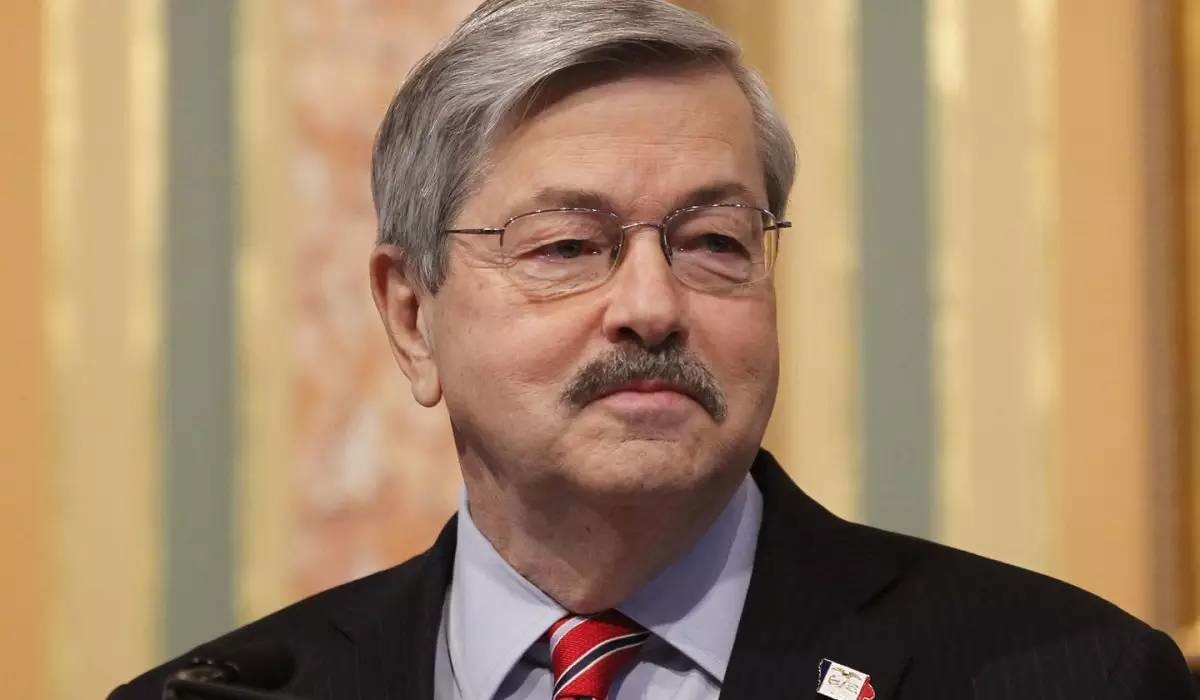
- Reuters reports: "The new U.S. ambassador to China has said that stopping the threat posed by North Korea will be a top priority, along with resolving the U.S.-China trade imbalance, according to a video message to the Chinese people released on Monday.Terry Branstad, a former Iowa governor, has been described by Beijing as an "old friend" of China. Branstad was confirmed on May 24 as President Donald Trump's new ambassador to China but his arrival date has yet to be announced."Resolving the bilateral trade imbalance, stopping the North Korea threat, and expanding people-to-people ties will be my top priorities," Branstad said in the video message, which was released on a popular Chinese video-streaming platform.Trump has placed high hopes on China and its president, Xi Jinping, exerting greater influence on North Korea, although he said last week Chinese efforts to rein in the reclusive North's nuclear and missile programs had failed."
- Foreign Policy comments: "Donald Trump's June 20 tweet on China was not your average Trump missive. He wrote: "While I greatly appreciate the efforts of President Xi & China to help with North Korea, it has not worked out. At least I know China tried!" No bombast … no threats … no defensiveness — just a giant guilt trip on Beijing. I am no fan of this president's tweets, but there appears to be some method to this particular madness. Secretary of State Rex Tillerson and Secretary of Defense James Mattis hosted their Chinese counterparts in Washington on June 21-22 for the first U.S.-China Diplomatic and Security Dialogue, announced by the president and China's Xi Jinping at their April Mar-a-Lago summit. The Chinese went into the meeting hoping to secure American agreement on a U.S.-China strategic partnership of some kind and to convince the administration to offer a freeze-for-freeze deal under which Pyongyang stops testing nuclear weapons and long-range ballistic missiles and the United States and South Korea agree to scale back military exercises.
The Wall Street Journal reports: "As Beijing looks to rein in companies that have splurged on overseas deals, it is talking up the systemic risks to its financial system. But just how serious is the problem? After all, for years Beijing has urged leading companies to "go global," and encouraged banks to support them with lending. Its words were taken to heart: Companies like sprawling conglomerate HNA Group and insurer Anbang pushed the country's outbound acquisitions to more than $200 billion last year, according to Dealogic. Now, as The Wall Street Journal reported last week, regulators are investigating leverage and risks at banks associated with China Inc.'s bulging overseas deals. It's clear that Chinese banks are already heavily exposed to China's big deal makers through basic lending. Chinese lenders had extended more than 500 billion yuan ($73.14 billion) of loans to HNA alone as of last year, according to a company bond filing."
- 2017-06-25 There's No End in Sight for China's Rise Up the GDP Rankings
- 2017-06-23 Xi Jinping Is Set for a Big Gamble With China’s Carbon Trading Market
- 2017-06-22 Exclusive: South Korea president calls on China's Xi to do more on North Korea nuclear program
- 2017-06-21 China stocks hit 18-month high on MSCI inclusion
- 2017-06-20 China tour agency says won’t take more US tourists to NKorea
- 2017-06-19 China, Russia held navy drill on Sunday: Xinhua
- 2017-06-18 China launches crackdown on academic fraud
- 2017-06-16 As Trump Bets on China’s Help on North Korea, Aides Ask: Is It Worth It?
- 2017-06-15 ‘China Panic’: Beijing Envoy Accuses Critics of Fearmongering
- 2017-06-14 The Disappearance of a Chinese Deal Maker
- Reuters New U.S. ambassador to China says North Korea a top priority
- The Wall Street Journal Ties Between Chinese Banks and Deal Makers Run Deep
- The New York Times China Jails Workers From Crown Resorts of Australia in Message to Casinos
- The Washington Post China landslide site evacuated over concerns of 2nd slide
- The New York Times Liu Xiaobo, Chinese Nobel Laureate, Leaves Prison for Cancer Care
- Reuters Hong Kong's youth press campaign despite China's rejection of full democracy
- The Financial Times China stocks rally as other Asia Pacific bourses struggle
- The Washington Post Vatican worries about 'forcibly removed' bishop in China
- The Wall Street Journal China's Debt Market Woes Grow as Large Bond Deal Sours
- The Financial Times Xi Jinping's war on the 'financial crocodiles' gathers pace
- Bloomberg Hong Kong's Mr. Market Wants a Piece of All Your China Trades
- Reuters China to strengthen supervision of overseas investment: Xinhua
- Bloomberg China's Rags-to-Riches Transformation Isn't Over Yet
- Foreign Policy Is Trump Tweet Guilting China?
- The National Interest Could Trump's Protectionism Spark a Trade War?
- TIME Trump Has China to Thank for Recent Coal Industry Spike
- Forbes How India Got Wrapped Up In China's Belt And Road Initiative, Despite Opposing It
- The Diplomat US-China Talks in Washington Were Another Missed Opportunity on the South China Sea
- Forbes China's 'One Country, Two Systems' Principle Won't Ever Work In Taiwan
- The Diplomat How CPEC Security Will Test the 'All-Weather Friendship' of China and Pakistan
